Death has long been a mystery, with countless studies, anecdotes, and theories trying to unravel the signs that indicate when the end is near. Interestingly, recent research suggests that our sense of smell may hold the key to predicting death. The body undergoes many changes in its final stages, and one of the earliest warning signs may begin in the nose—both in terms of detecting death in others and experiencing a loss of smell as a sign of declining health.
Smelling Death: A Sixth Sense?

Many people have shared eerie stories of sensing a strange odor just before the passing of a loved one. While this may sound like a supernatural ability, science suggests that there might be a real biological basis for this phenomenon.
Some researchers believe that as the body nears death, it releases specific chemicals or pheromones that some individuals with a heightened sense of smell can detect. These subtle shifts in odor might be imperceptible to most people, but animals—especially dogs and cats—have demonstrated the ability to detect these changes.
Hospice workers and medical staff have also reported experiencing an unusual yet consistent smell when patients are close to passing away. This could be linked to metabolic changes that occur as the body prepares for its final transition.
Video : Your Body Knows When Death Is Near, And It All Begins In The Nose
Animals and Their Ability to Detect Death
Dogs and cats have an extraordinary sense of smell, and there have been numerous documented cases of pets predicting death. Some hospice and nursing home staff have even reported cases of therapy cats instinctively curling up beside a patient just hours before they pass away.
Scientific studies have shown that animals can detect chemical changes in the human body, especially in people with terminal illnesses such as cancer. This is why trained service dogs can smell and alert their owners to drops in blood sugar levels, seizures, or even the presence of diseases.
Could it be that certain humans also possess a similar heightened olfactory ability? While research is still in its early stages, anecdotal evidence suggests that our noses may play a larger role in sensing death than we realize.
Loss of Smell: A Predictor of Future Health
Not only can the nose possibly detect death in others, but losing your own sense of smell may also be a warning sign of declining health.
Several studies have indicated that a diminishing ability to smell could signal serious health conditions, including:
- Neurodegenerative diseases like Parkinson’s and Alzheimer’s
- Respiratory issues and lung diseases
- Cardiovascular disease
- General decline in bodily functions leading to increased mortality risk

A study published in the Journal of the American Geriatrics Society found that elderly individuals who had lost their sense of smell were significantly more likely to die within five years than those who retained a normal sense of smell.
Scientists believe this could be because olfactory decline is linked to the body’s overall ability to regenerate cells and fight off disease. Since the sense of smell is closely tied to the nervous system, changes in the olfactory system could be early indicators of neurological deterioration.
The Future of Smell-Based Diagnostics
As medical technology advances, researchers are exploring how smell-based diagnostics could revolutionize healthcare. Some scientists are developing “electronic noses”—devices designed to detect the presence of disease through breath analysis.
These artificial noses may eventually be able to detect cancer, infections, and even signs of impending death just by analyzing a person’s breath and body odors. With further research, these discoveries could lead to groundbreaking new methods for early disease detection and prevention.
Signs the Body is Preparing for Death
Beyond the changes in smell, there are other physical, emotional, and psychological signs that the body may be preparing for death. These signs can appear weeks, days, or hours before passing.
Weeks Before Death
- Increased fatigue and sleeping more than usual
- Loss of appetite or disinterest in food
- Social withdrawal and detachment from loved ones
- Decreased energy levels and difficulty performing basic tasks

Days Before Death
- Labored breathing or irregular breathing patterns
- Confusion and disorientation
- Swelling in the hands and feet due to poor circulation
- Decreased urine output and kidney function decline
Hours Before Death
- Changes in skin color (mottling, bluish hands and feet)
- Shallow or gasping breaths
- Inability to respond to surroundings
- A sudden burst of energy, followed by deep unresponsiveness
Understanding these signs can help family members and caregivers provide comfort, emotional support, and appropriate care during the final moments of life.
How to Prepare for the Final Stages of Life
If you or a loved one is facing the end of life, it’s essential to focus on comfort and dignity. Here are some ways to help navigate this challenging time:
- Create a peaceful environment – Soft lighting, gentle music, and familiar surroundings can provide comfort.
- Encourage open conversations – Allow loved ones to express their fears, regrets, or final wishes.
- Offer physical comfort – Provide warm blankets, keep lips moist, and adjust body positioning to ease discomfort.
- Seek hospice or palliative care – These services specialize in providing end-of-life care with dignity and compassion.
- Be present – Sometimes, the most meaningful act is simply being there, holding a hand, and offering quiet support.
Video : Can Your Nose Smell Death? The Shocking Science Behind Our Final Moments
Final Thoughts: Does the Body Know When Death is Near?
The idea that the body knows when death is near, and it begins in the nose is a fascinating concept that continues to be explored in the fields of medicine and human biology. While more research is needed, evidence suggests that our sense of smell may play a more significant role in detecting death—both in others and in ourselves—than previously thought.
The connection between olfactory function and overall health opens new doors for medical diagnostics, early disease detection, and understanding the aging process.
While death remains one of life’s greatest mysteries, continued research into the human body’s early warning signs could help improve quality of life, provide valuable medical insights, and allow for better end-of-life care.
Jimmy Carter has become the first U.S. president to turn 100 years old.

Former President Carter and wife Rosalynn are shown on a walk in their hometown of Plains, Georgia. (Matt McClain/Washington Post via Getty Images/File)
Former Democratic President Jimmy Carter turned 100 years old on Tuesday, making him the first U.S. president to live for an entire century.
Carter, the 39th president, has been known for several “firsts.” He was the first U.S. president born in a hospital, the first Naval Academy graduate to become president, and the first president to visit Sub-Saharan Africa officially. Now, he holds the record as the first U.S. president to reach 100.
Carter is currently receiving home hospice care in his hometown of Plains, Georgia, where he has lived since his presidency ended in 1981. He has been in hospice care for nearly two years. Sadly, his wife, Rosalynn, passed away last year at the age of 96.
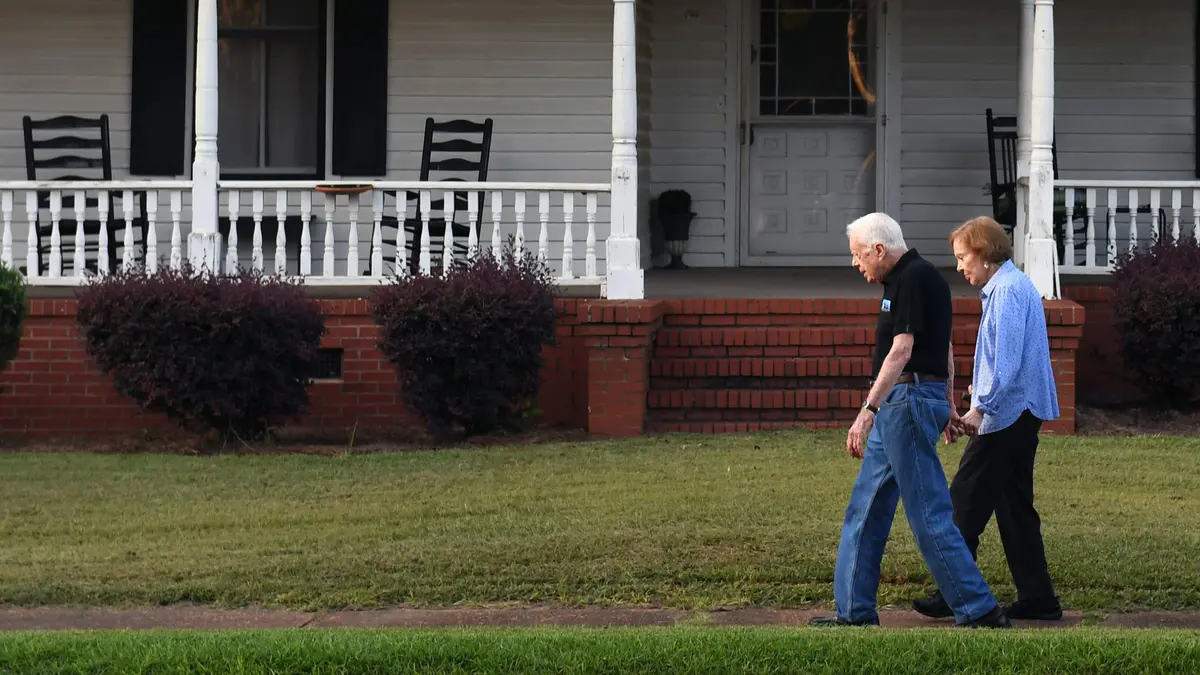
Jill Stuckey, a family friend of the Carters for over 30 years and the superintendent of the Jimmy Carter National Historic Park, said, “It’s funny, President Carter has done so much and usually succeeds at everything. But the one thing he hasn’t been great at is hospice.” She added, “He just keeps living, and we’re so happy about that. So if he’s not good at something, we’re glad it’s hospice.”
When asked what makes Carter different from other presidents who lived to an old age, Stuckey said it was his “tenacity” — his determination and will to keep going.
Jill Stuckey told Fox News Digital that Jimmy and Rosalynn Carter always wanted to live as long as possible and stay healthy so they could help as many people as they could. She said they ate healthy meals, exercised every day, and worked hard to take care of themselves so they could keep helping others. “That’s what President Carter is showing today — that all those efforts really make a difference.”
The White House also put up a birthday message for Carter on the North Lawn to celebrate his 100th birthday.
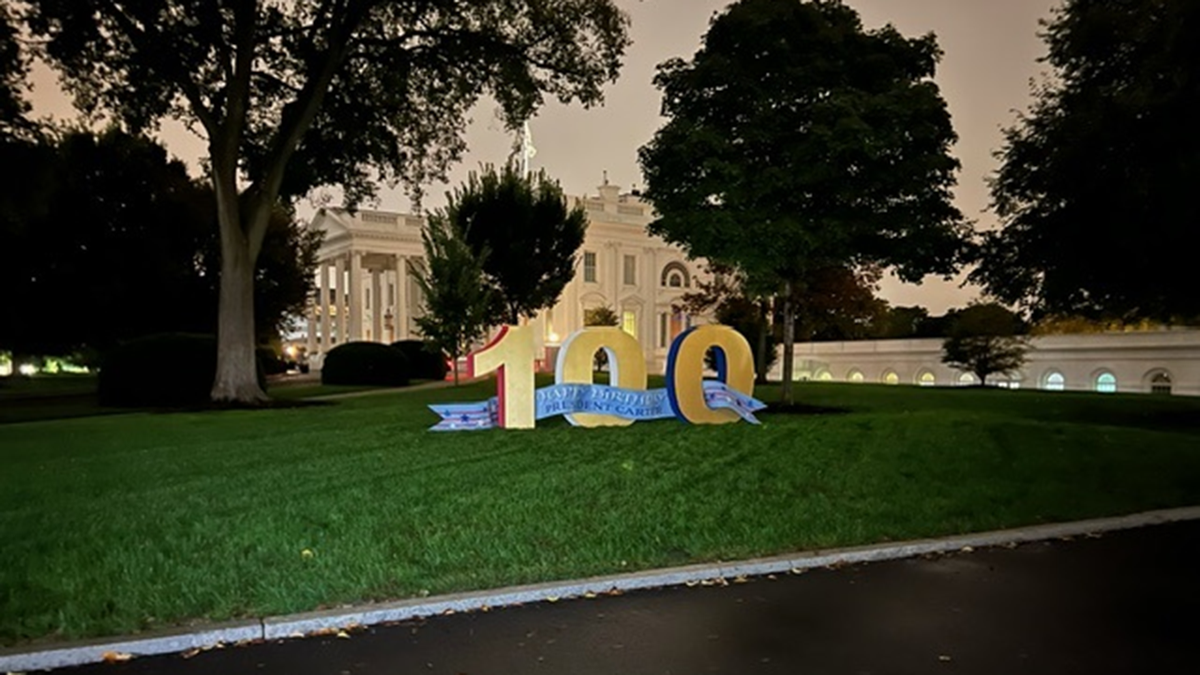
Jill Stuckey said that celebrations for Carter’s 100th birthday started on Saturday in Plains, when the town held its annual peanut festival. “We celebrate peanut harvest season here in Plains, and it happens around the same time as President Carter’s birthday every year, so we usually celebrate them together,” she said.
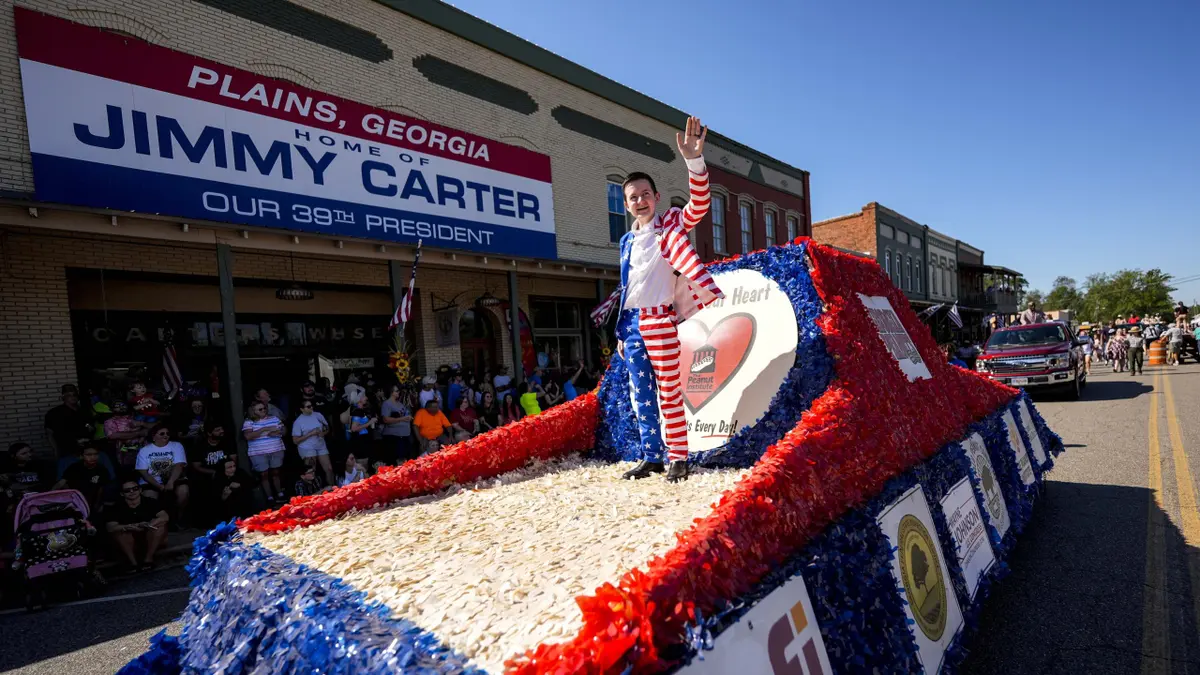
Jill Stuckey also mentioned that on Tuesday, for Carter’s birthday, there will be more events in Plains, including a ceremony at Plains High School where 100 new citizens will take the oath. This is special because both Jimmy and Rosalynn Carter went to that school.
After the ceremony, there will be a flyover to honor former President Carter, organized with help from Secretary of the Navy Carlos Del Toro. Later in the afternoon, Plains will hold a ribbon-cutting ceremony for new statues dedicated to the Bill of Rights and the Constitution.
In celebration of Carter’s birthday, volunteers in St. Paul, Minnesota, came together to build 30 new homes over five days. Country music stars Garth Brooks and Trisha Yearwood were among the participants.
“You’re one of the most influential statesmen in our history,” President Biden said in a video released ahead of Carter’s birthday on Tuesday.
Over the weekend, Grand Ole Opry member and country music legend Charlie McCoy played a special rendition of “Georgia On My Mind” to honor the former president.
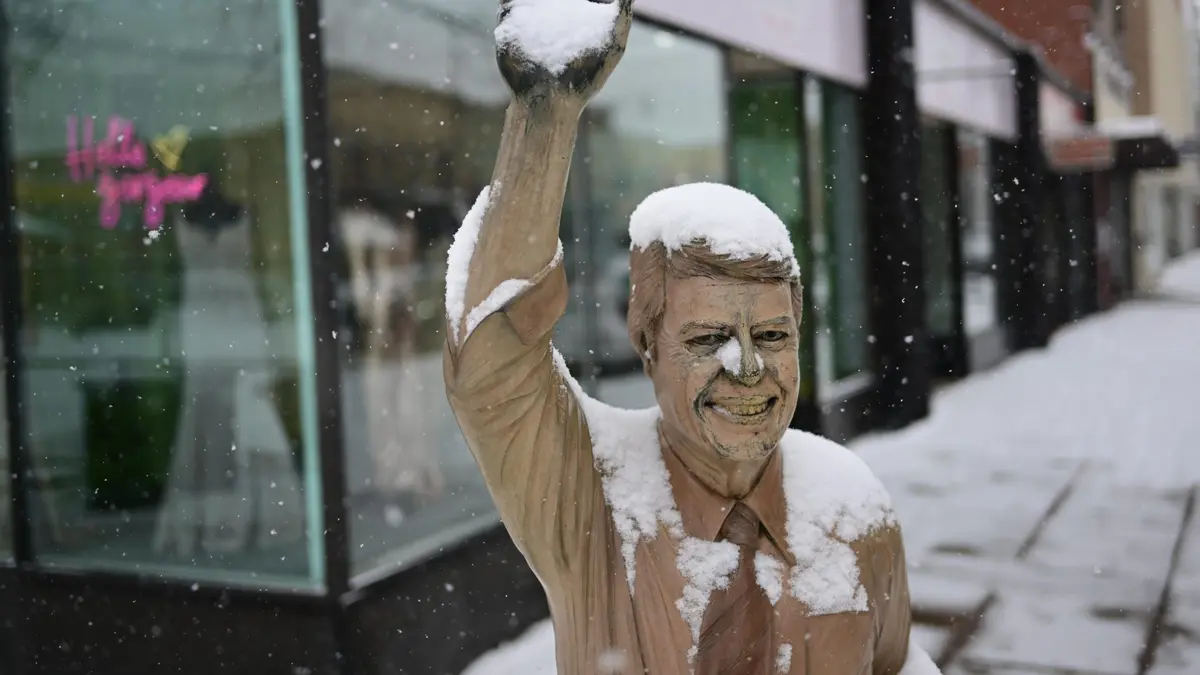
Cathie Skoog, a former member of the White House Communications Agency, said, “I remember the first time I saw him, and I was in awe. That feeling has always stayed with me. You can meet presidents all the time, but the first time is always the most special.” She added, “He didn’t care what people thought. He just did what he believed was right for the country.”
During his time as president, Carter focused on protecting the environment, improving human rights, and making the American education system better. He made big changes, like updating the civil service system, opening up the airline industry to more competition, and creating the Energy and Education departments. He also helped make cars safer by requiring both seat belts and airbags.
Carter’s time as president also had its challenges. There was high inflation, an energy crisis, and failed efforts to free American hostages who were held in Iran. His Secretary of State, Cyrus Vance, eventually resigned because he disagreed with how the administration handled the hostage situation.
During the Iranian Revolution, oil prices in the U.S. went up sharply. In July 1979, President Carter gave a speech where he said Americans were losing confidence in the country because of rising inflation and the energy crisis.
He said, “The signs of this crisis of spirit are everywhere. For the first time, most Americans think the next five years will be worse than the last. Two-thirds of people don’t even vote. Workers are less productive, and Americans are saving less than people in other Western countries.”
Carter added, “We need to face the truth, and then we can change direction. We must believe in each other, believe we can govern ourselves, and have faith in the future. Restoring that faith is our most important job now.”

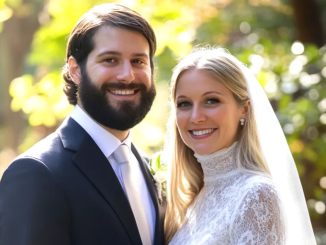
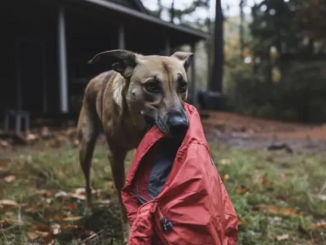
Leave a Reply